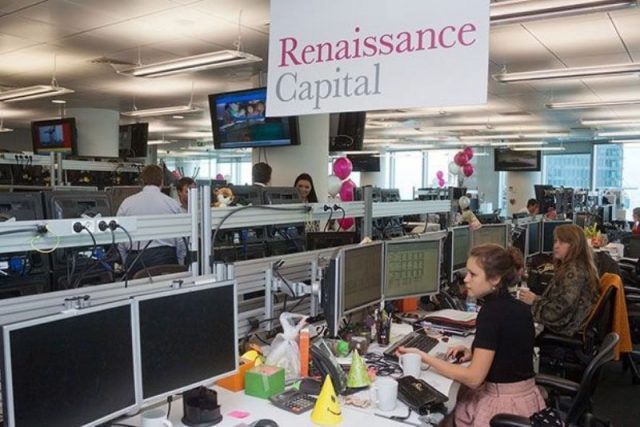…‘’We see GTCO, ETI, FBNH and Access Bank as the leading banks to watch on this front.’’
29 APRIL, 2022-theGBJournal | As highlighted in Briter Bridges Africa Investment Report, M&A activity in Africa remained buoyant and homegrown in 2021, ie, local (African) start-ups acquiring other local start-ups. In 2021, the ecosystem recorded 33 M&A deals, up 94% YoY from 17 in FY20. YtD, the ecosystem has recorded at least 15 M&A deals (45% and 88% of FY21 and FY20 totals respectively) with ~27% of the transactions recorded in 2022 YtD involving foreign acquirers.
By sector, fintech led the M&A chart with 12 deals in 2021, accounting for c. 40% of total M&A deals on the continent during this period. Another sector where the pace of M&A activity has been picking up, is in the retail space, particularly B2B commerce in 2022 YtD, driven by bolt-on acquisitions to add fintech capabilities to their product offerings. Most M&A deals tend to happen within the acquirer’s home country and when they choose to reach out, we find that it is typically to neighbouring countries, e.g. Nigeria to Ghana or Egypt to Morocco.
Room for incumbents to play?
There are five main strategies that incumbent financial services firms are deploying in Africa: 1) direct investments, 2) partnerships, which is the most eagerly adopted strategic response, 3) participating in fundraising rounds, 4) incubators or accelerator programmes, and 5) facing the threat head-on. African banks, led by Nigerian banks, are seeking to compete more directly with fintech firms, but we expect them to face some challenges, not limited to culture, lack of long-term risk-taking venture capital, legacy thinking, etc. Therefore, we expect the winning strategy is likely to involve a combination of the above strategies. The medium-to-long term goal for the successful banks could be to carve out and list their payments businesses separately (following in the footsteps of leading African telcos), and we see GTCO, ETI, FBNH and Access Bank as the leading banks to watch on this front. That said, they must first prove their mettle in this increasingly competitive space.
On a geographical basis, the big four – Nigeria, South Africa, Egypt, and Kenya – have accounted for c. 67% of the M&A deals on the continent in 2022 YtD. We do not find this surprising as we expect a strong correlation between fundraising and M&A – these countries top the African fundraising charts and as such, start-ups therein have relatively more cash and are more inclined to consider inorganic growth for product, customer or geographic expansion reasons.
We expect these countries to maintain their leadership position as the M&A wave in Africa gains momentum, with a few other countries potentially joining as start-ups attract more funding.
Regional M&A trends
When we looked at recent M&A deals on the continent between 2021 and 2022 YtD, we observed an interesting trend – a significant portion of the deals involved start-ups either acquiring other start-ups within their own country or expanding their footprint into neighbouring countries. Start-ups in Africa got off to a busy start in 2022 as YtD, South Africa leads in terms of consolidation (with four acquisitions). The main acquirers in South Africa were either mature companies (e.g. Silvertree Brands’ acquisition of UCOOK) or start-ups that recently closed a mega-round (e.g. Yoco’s $83mn raise and acquisition of Nona Digital). Nigeria (with three acquisitions) and Egypt (with two acquisitions) came in second and third, respectively.
Breaking it down further, for recent M&A activities (i.e. between 2021 and 2022 YtD) occurring outside both parties’ (the acquirer and acquiree’s) country of origin, we observed that: 1) Nigerian start-ups tend to move to Ghana (~20% of Nigerian acquirers took this route vs c. 50% remaining within the country); 2) start-ups in Egypt either moved to Morocco or to some other country within the GCC region (~33% of Egyptian acquirers explored this option vs c. 50% of them remaining within the country), e.g. to Oman, Saudi Arabia, etc.
The reasons for this could be due to:
-Similar macro-economic conditions
-Language and cultural commonalities
-Founders’ familiarity with the market as it is a neighbouring country
Also, we observed that start-ups in South Africa were agnostic in terms of their out-ofcountry expansion destination, with Nigeria and Egypt (both accounted for ~22% vs ~77% of South African acquirers remaining within the country) showing up on the list.
Egypt appears to be the choice destination of foreign acquirers, as seven Egyptian startups were acquired by foreigners (c. 50% of all foreign acquisitions in the African tech space between 2021 and 2022 YtD). This may be due to: 1) foreign acquirers’ familiarity with the region (c. 42% of the foreign acquirers were from the GCC region, which Egypt also belongs to); 2) improving regulatory dynamics especially in the Egyptian fintech space. For example, the country recently launched its instant payment scheme which is expected to accelerate innovation in the fintech space; and 3) availability of local engineering talent.
By sector, fintech led the M&A chart with 12 deals in 2021, accounting for c. 40% of total M&A deals on the continent during this period. Most of the deals saw the acquirers either consolidate their position in the fintech space or expand their capabilities to participate elsewhere in the sector – to widen their revenue base and ward off competition.
Another sector where the pace of M&A activity has been picking up, is in the retail space, particularly B2B commerce in 2022 YtD, driven by bolt-on acquisitions to add fintech capabilities to their product offerings for example. For the B2B players, adding fintech capabilities is a logical next step after building a strong marketplace offering that serves distributors and merchants, with the fintech solutions helping to drive user stickiness and increase life time.
In terms of participation we note that a handful of financial services firms have taken direct exposure in fintech companies via minor or significant stakes, such as Emerging Africa Group or Weaver Fintech or CIB Egypt’s (BUY, TP EGP66.30, CP EGP42.00) stake in Fawry Plus. Some have increased existing stakes, such as Access Bank (BUY, TP NGN12.10, CP NGN9.90) with eTranzact, or embarked on a full-on acquisition, such as Dockland Ventures’ acquisition of ParkUpp.
Considering the increasing demand in Africa for tech talent by start-ups and global tech firms such as Google, Microsoft, Apple, etc, we expect investments by big tech and banks to drive the development of a strong pipeline of engineering talent on the continent, even as Nigerian banks complain of a ‘great resignation’ of their software engineering talent.
We like that African banks, led by Nigerian banks, are seeking to compete more directly with fintech firms, but we expect them to face some challenges not limited to culture, lack of long term risk-taking venture capital, and legacy thinking.
Therefore, we expect the winning strategy is likely to involve a combination of the above strategies, with partnerships playing an increasingly larger role in the evolving landscape as tech/fintech firms leverage their competitive advantages over banks, which includes being digital natives, improving access to better tech talent and their young dynamic culture, and higher quality lower cost tech resources.
Some concluding thoughts
We think the trend of consolidations in the ecosystem is likely to continue, spurred on by access to venture funding, with fintech companies leading the charge.
Further, as it is often quipped that – every company will be a fintech company – we expect to see the strategic acquisitions of smaller fintechs, especially those in payments, by retail/e-commerce, healthtech players, etc, as they look to embed financial products in their platforms.
We think banks will increasingly explore partnership opportunities, not in the least because they would likely struggle to justify the financial considerations to acquire large fintech companies. We expect banking-as-a-service to gain stronger momentum on the continent, with ETI and Equity Group leading the charge and expect banks to continue exploring venture investment opportunities while going for the opportunity themselves in some instances. The medium- to long-term goal for banks that succeed in payments could be to carve out and list their payments businesses separately (following in the footsteps of leading African telcos) and we see GTCO, ETI, FBNH and Access Bank as the leading African banks to watch on this front.
To say that the African fintech landscape is unlikely to evolve materially would be foolhardy, in our view. African fintech is probably only just about seven years old, if we use when leading players, Paystack and Flutterwave commenced operations (2015) as a baseline. There will be more innovations across different verticals that we expect to get even more complex over time as business model distinctions get blurred as technology advances and businesses explore different growth strategies. Banks and telcos will respond in more aggressive ways as their core business gets threatened, and we expect to see more efforts by big tech and global fintech players to participate in the burgeoning African tech/fintech ecosystem.
To conclude, as some tech/fintech players fall by the wayside (be that for funding constraints, competition, regulations or other challenges), the beauty of rising venture funding and technological advancements in Africa is that some powerful and highly scalable businesses are getting built.
As these companies (hopefully) reach sustainable earnings and cashflow generation, and to capture the rapidly evolving consumer/merchant behaviours and technological advancements across different African markets, we expect M&A to continue playing a meaningful role in these companies’ capital allocation toolkit.
Twitter-@theGBJournal|Facebook-The Government and Business Journal|email: gbj@govbusinessjournal.ng|govandbusinessj@gmail.com










